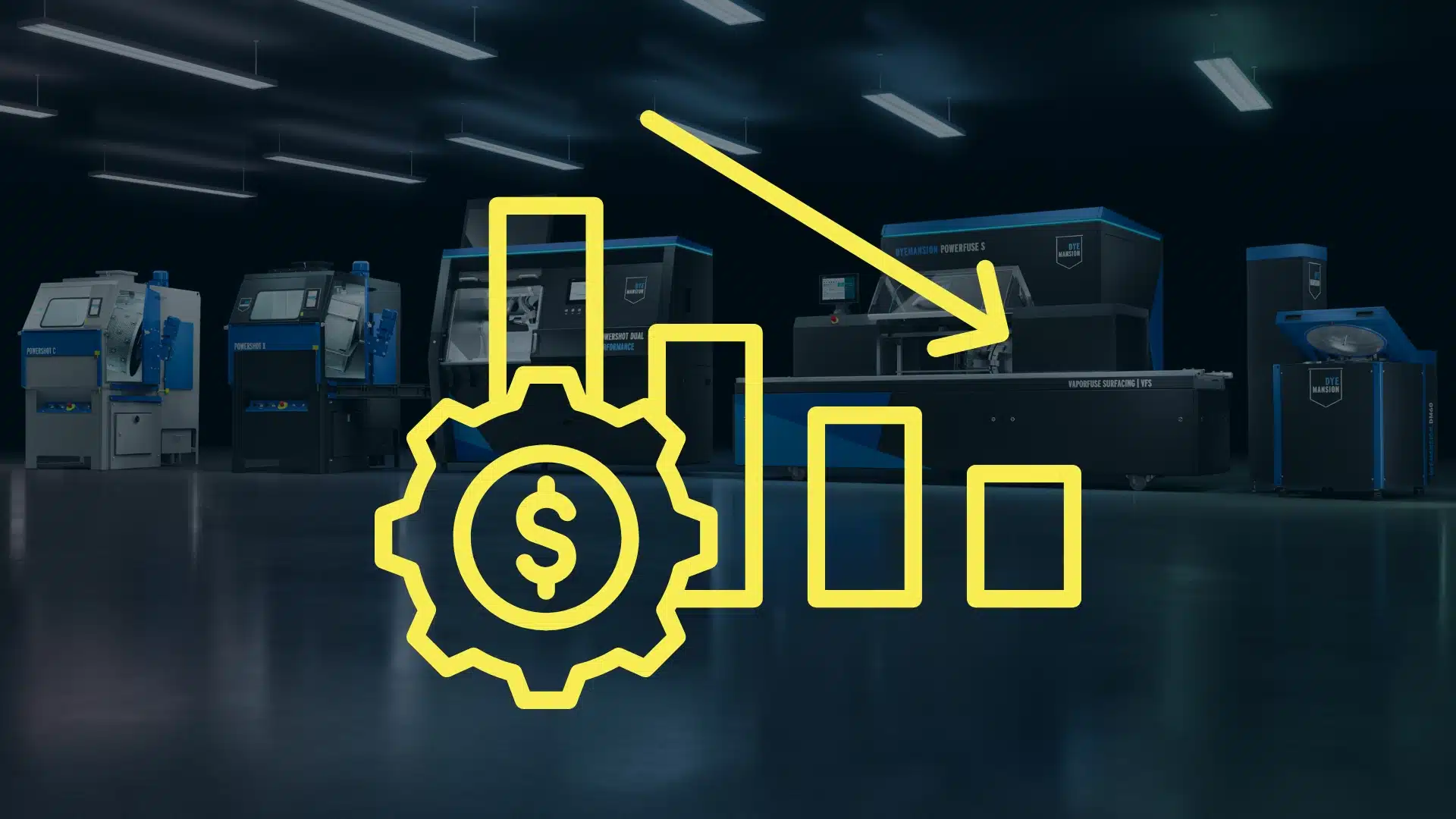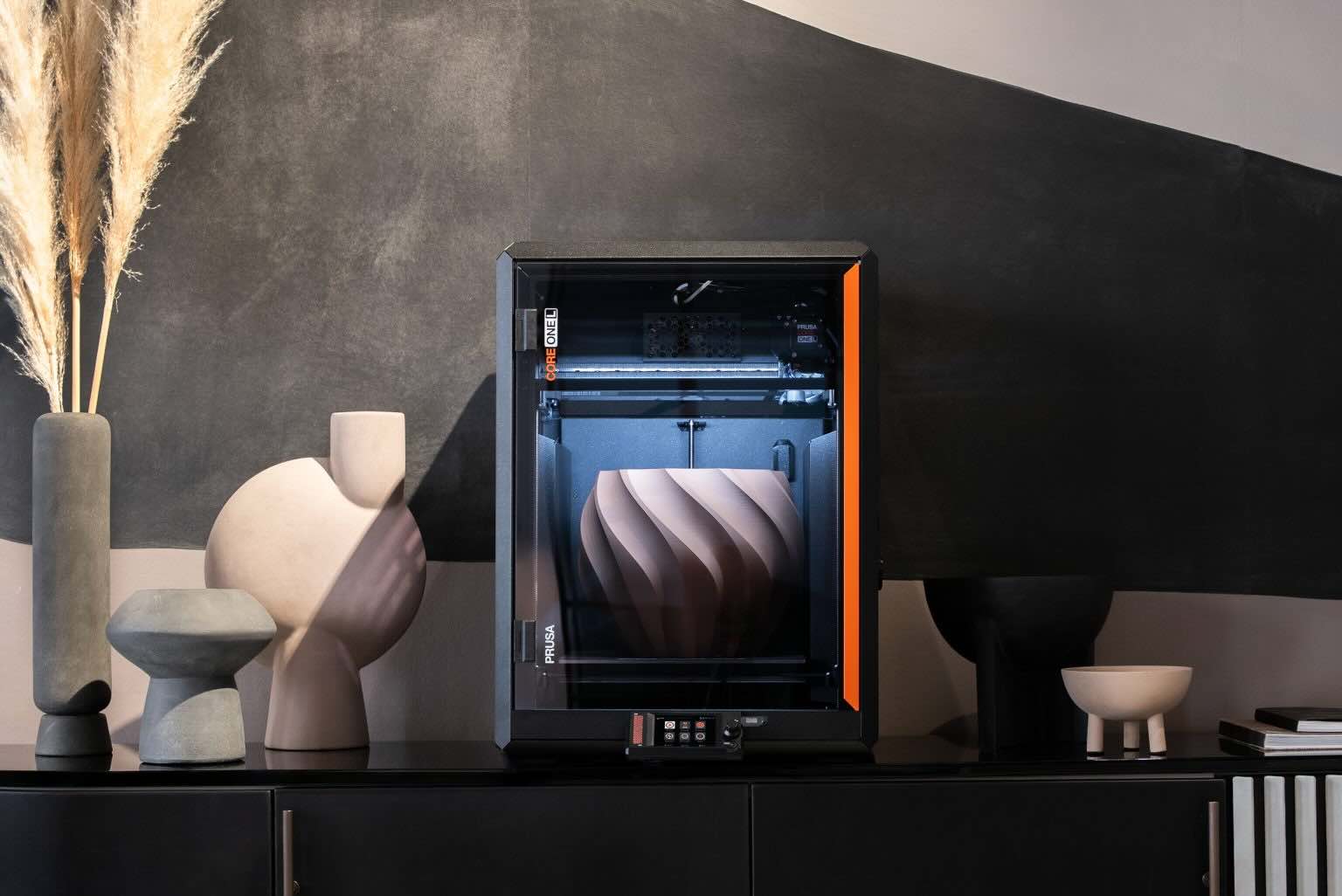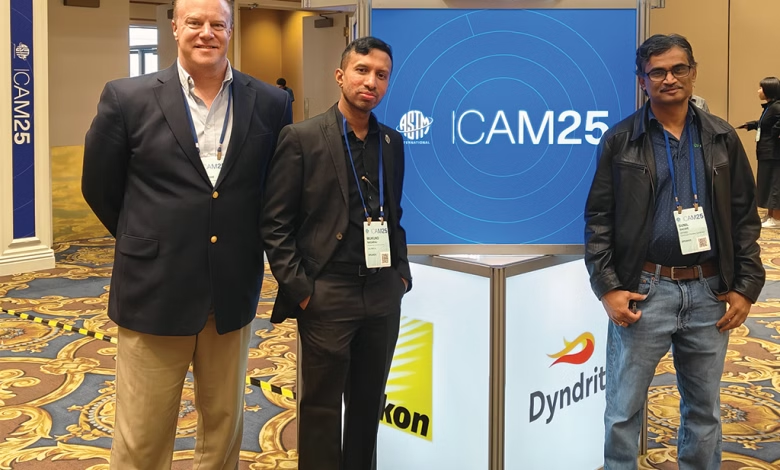
We recently got our hands on the latest Anycubic Kobra Plus 3D printer and decided to post a review. The Kobra Plus is the newest addition to the Kobra lineup of Anycubic’s FDM 3D printers. It can be called as a scaled down version of the bigger Kobra Max and an upgrade on the smaller and series starter, Kobra. It is even bigger than the Vyper 3D printer.
Manufactur3D team tested the Kobra Plus and evaluated it to understand its advantages and its drawbacks to help you decide whether you should buy this latest budget 3D printer or give it a miss.
About Anycubic Kobra Plus

Anycubic Kobra Plus has an obvious stamp of the Kobra series and falls right in between its two predecessors the Kobra and Kobra Max. With nearly 60% more build volume than the Kobra and flushed with features like the Kobra Max, this printer is sure to pack a punch.
The Kobra Plus projects a welcoming picture to its user and feels less daunting than the Kobra Max. It has a build volume of 300 x 300 x 350 mm and comes with a range of features comparable to the Kobra Max. It boasts of an all-metal Bowden extruder, Smart bed levelling with LeviQ, print resume and filament runout sensor and a carborundum glass bed among others.
We set off to find how the printer performs in comparison to its brothers in the Kobra range and evaluate who should buy this printer and what to expect out of it.
What’s in the Box?

First off, the Kobra Plus comes in a handy and neatly packed box that roughly weighs around 7kgs. The printer is not a plug-n-play and has to be assembled so the box has the printer parts as well as all the tools necessary to assemble the printer.
Once you open the box, you will find a multitude of packets and items namely the 3D printer bed, 3D printer frame, tools to build the printer, side cutter, plastic scrapper, nozzle cleaner, grease, a microSD card with a USB adapter, a quick start guide to help you build the printer.
Note that the microSD card has a PDF copy of the manual, if you prefer that. We found the pdf manual to be quite handy and useful than the hardcopy as we can nicely zoom in and out to make sure we are doing the right thing.
The microSD card also has a sample model to print. It also has a copy of Cura 4.2.1 with profiles for PLA and TPU to get you started. It is important to note that since it is a new printer, the profiles were not available at the time of reviewing this printer and so it was thoughtful on Anycubic team to also share profiles in the drive.
Lastly, the box also comes with a spare nozzle and small sample of PLA. (We received a complete 1Kg spool but that’s the privilege of being a reviewer.)
Printer Assembly
Assembling a 3D printer has historically been a point of contention. Some love the experience as they get to learn about the 3D printer and its components and more while others hate it and just see it as a hindrance to getting started with 3D printing.
Since the past few years, manufacturers have understood the problem and found a midway which not only gives you the feel of assembling a printer but also makes it quite a quick and easy process.
Assembling Kobra Plus

Anycubic Kobra Plus falls in the second category and its assembly is a breeze. It can be called as an almost-assembled printer.
Before we start, just a word of advice. Make sure you cut all zip ties at the start as you have to cut them eventually. You don’t want to assemble your printer only to find out that one zip tie lurking at a hard to reach place later on.
The ideal way is to start with install the print bed and the gantry. The frame has accurate notches and you cannot go wrong in any attachments. Note that the motors should face the back of the printer. Once the gantry and print bed is locked in place, just bolt it. The bolts are at the bottom of the printer so you’ll have to carefully tilt the printer.
Note that you have extra bolts/screws and few of them will be in spare at the end of the assembly, so don’t go looking for places to screw. It is only for contingencies in case you lose any of them.
Next, install the glass bed. For this, simply place the plate onto the metal base plate and attach it with clamps.
After this, connect the touchscreen to the base plate on the right side of the printer with a few screws.
Lastly, attach the spool holder. This doesn’t even require any screwing. It just snaps to the grooves in the bottom rail. Ensure it is as close to the frame as possible.
With this, the hardware is all connected, all you have to do it connect the wiring. Now we won’t go into the depth of the entire wiring process. It is quite easy and well explained in the manual.
Assembling it involves only connecting the print bed with the gantry, which already has the print head mounted on it. All you have to do is carefully attach the gantry onto the body of the print bed and bolt it in place.
The spool holder doesn’t even require any screwing. It just snaps to the bottom rail. And Voila! Your printer is assembled.
Comments on Assembly
- We found the assembly to be very easy and fast. The instructions were straightforward, the manual is easy to understand and tells you exactly what to do. The large images certainly help in assembling the machine.
- Our team had a first time user and he assembled the machine in just over 1 hour. So, if you are an experienced user, without any exaggeration, the assembly should not take more than 30 minutes. It not a plug-n-play device but is definitely quite close to it.
- If you are a first time user, then you will enjoy the process of building the printer without the slightest bit of irritation that generally is associated with kits.
- Make sure you cut all zip-ties at the start to make the process even smoother.
Design of Kobra Plus

There isn’t much to say about the design aspect of the Kobra Plus. For obvious reasons, it is similar to the other Kobra series printers. The printer has a smooth black aluminium frame that look and feel sturdy complemented by plastic parts embossed with futuristic looking patterns.
The motors are quite silent and fans too making it good for an office environment. Unlike the Kobra and similar to Kobra Max, the spool holder is attached to the bottom rail. This is obviously a good design change as it reduces the weight on the main frame.
The touchscreen goes on the right side of the printer and is tilted for an easy viewing angle while the spool holder is on the other side of the printer. So, if you are looking at placing the printer in a cramped spot, then you will be disappointed. The overall width of the printer is quite more than what you may actually see in the specs.
Features
Now taking a look at the key features of Kobra Plus.
Build Volume
The first and most striking difference you notice in the new Kobra Plus is its large build volume. It is a big bump from the Kobra which had only 12Litres of volume. The Kobra Plus has a build volume of 300 x 300 x 350 mm or 31.5 Litres of printing volume which is 60% more build space than Kobra. This is almost half the size of the Kobra Max but you still get a lot of printing space to print bigger parts. There was a significant gap between the Kobra and the Kobra Max and the Kobra Plus sits right in between. It is the perfect gap filler in terms of its size.
Print Bed
The print bed is made from carborundum glass. This bed is known to perform well in both hot and cold states and thus, it holds onto the print, while printing, and is equally easy to scrape off parts after printing.
Bowden Extruder
As mentioned earlier, the Kobra Plus is closer to the Kobra Max than the base Kobra. Like the Max, the Kobra Plus comes with a Bowden extruder. This definitely has its pros and cons but looks like the company is focussed on delivering a faster and smoother printing experience. A Bowden extruder also means you cannot print with flexible filaments like TPU and thus limits your material usage range.
Bed Levelling
The Anycubic Kobra Plus boaats of the brand new auto-levelling systems called the LeviQ. This is an inhouse developed inductive automatic bed levelling sensor. Inductive levelling uses a non-contact magnetic probe – it senses the metal surface of the build plate while hovering a few millimetres above it.
Double Thread Z-axis
One important component of the Kobra Plus is the double thread Z-axis. This is what enables faster printing speeds. This was missing from the earlier and smaller Kobra 3D printer. You can print with constant speeds of up to 100 mm/s but it easily can go to 180 mm/s.
The double Z-axis when combined with dual fans and high power metal heating for fast melting out, all-metal geared extruder for smooth filament in and out enable the faster printing speeds in Kobra Plus.
Touchscreen
The 4.3 inch LCD touchscreen is responsive and is of the same size as you find in Kobra and Kobra Max. For a better user-experience, the touchscreen has a bright full-colour display. It is easy to navigate and the clicking sound when you press a key, is kind of addictive as well. The home screen displays the Anycubic logo and four logical options namely Print, Prepare, Tools and System.
Tool Drawer
This is quite an interesting and handy feature, especially for makers whose workspaces are often too cluttered. Keeping your printer specific tools handy is a difficult task but Kobra Plus definitely has the makers problems in mind. This sleek tool drawer sits right below the printer where your tools can rest safely.
Print Resume
Print Resume is now a default feature in most new 3D printers and the Kobra Plus does not deprive us of this important feature. In case of a power failure, the printer know where it stopped and seamlessly turns on when the power resumes.
Filament Runout Sensor
The runout sensor is also a common feature in modern 3D printers. Having this feature is useful and it tells the you when the printer is out of filament.
3D Prints on Anycubic Kobra Plus



We obviously tested the Kobra Plus with a few prints before we could bring you this review and the print quality is self-evident. We only used the default settings to test the prints and it worked like a charm. The prints look quite good, the silver filament is super shiny and almost feels like metal. The quality can get even better if you tweak the settings and customise it.
We had a 0.4mm nozzle and so the layer lines are quite prominent but using a 0.2mm nozzle will help. The layer height was also 0.4 mm with a minimal shell thickness. So, the settings were more targeted towards a fast print and thus the surface finish of the sample is not quite upto the mark.
For an untrained eye, the prints are great and you will be pleasantly surprised but if you are an experienced user, you may want to tinker a bit into the settings to eliminate the prominent layer lines and have a smooth top layers.
Tech Specifications
| Machine Footprint | 605 x 560 x 546 mm |
| Build Volume | 300 x 300 x 350 mm / 31.5 Litres |
| Weight | 7Kgs |
| Material Compatibility | PLA/PETG/ABS |
| Extruder Type | Bowden |
| Nozzle | .4mm (Interchangeable) |
| Filament Runout Sensor | Yes |
| Bed Levelling | Automatic |
| Connectivity | Micro SD, Micro USB |
| Interface | Colour Touch Screen |
Price
The Anycubic Kobra Plus is a budget 3D printer and sits between the Kobra and the Kobra Max. The Kobra Plus is even bigger than the Anycubic Vyper and so the pricing is according to its size and the wide range of features.
The regular US price of the Anycubic Kobra Plus 3D printer is $599. But Anycubic is running a Fan Festival from 14th July till 22nd July and it is offering a massive 22% discount. The US offer price during this period is $469. Grab the printer now!!
Kobra Plus 3D Printer Review: Bottom Line

The bottom line is fairly clear from our point of view. The printer is perfect for:
- Beginners who want to start 3D printing,
- And users who are into 3D printing and are looking to add a budget 3D printer to their arsenal
The easy and superfast assembly, range of features including the auto-bed levelling, heated bed, print resume, filament runout sensor and colour touchscreen run smoothly and operate efficiently.
The first prints we took were quite good with just the default settings. Experienced users who like better control over their prints can tweak the settings and get an even better performance.
Though you may not be able to print much with flexible filaments or composites, but if you are buying the Kobra Plus, you probably are looking to work with the common materials like PLA, ABS and others.
If you are looking for a good budget printer with a considerable build volume, then the Anycubic Kobra Plus 3D printer perfectly fits the bill.
Indian customers can buy the printer filaments here – ANYCUBIC 3D Printer PLA Filament
Rating
Rating the Anycubic Kobra Plus 3D Printer










